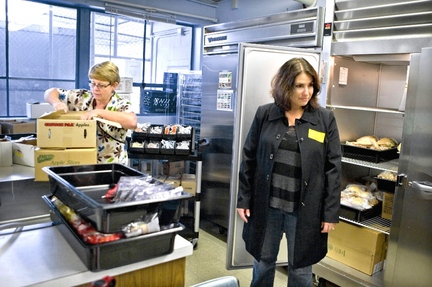
Share On Social!
School is the primary food source for many Latino students living in poverty.
So why do some students go hungry, while some schools have extra food that goes to waste?
To find an answer, Texas State Rep. Diego Bernal visited schools in San Antonio (63.2% Latino).
Bernal found that many kids, even in more affluent school districts, were going hungry while schools threw away, “untouched, unopened, ripe, perfectily edible food,” according to the San Antonio Express-News.
The reason: “Complexities of overlapping district, state, and federal policies, along with a collection of myths and cautionary tales.”
Bernal wanted to help.
Helping Schools Store, Share Unused Food
He championed legislation (HB 367), with the help of State Sen. José Menénedez, to allow schools to set up food pantries using good food that would have gone to waste.
The idea was for schools to donate the food to a nonprofit organization and a campus designee, such as a teacher, counselor or PTA member, to receive, store, and redistribute on campus at any time.
The bill, signed into law during the 85th legislative session, took effect Sept. 1, 2017.
Schools have a lot of freedom when implementing the program. For example, some schools may use or choose to invest in refrigerator space, while others may start with granola bars and cereal.
The Impact of the New Rules
A social justice group, Texas Impact, told the Express-News they are enthusiastic about the new law.
“It’s a small piece of the total picture of hunger in Texas, but everybody who advocated for and supported this bill can walk away from the 85th session confident in the knowledge that although it is small, it really will fill some empty tummies,” Bee Moorhead, director of the group, told the newspaper.
In El Paso, where school officials were allowed to try the program early, Olimpia Estrada has seen the amount of wasted food drop dramatically as officials have established programs allowing the redistribution of leftover food, according to the Texas Tribune.
“Anything to cut down on the waste and not feed the trash can, I think would be good,” Estrada said.
Share this with your school to begin setting up a food pantry and preventing food waste while kids go hungry.
Contact your state representatives to tell them your circumstances, stories, and ideas to improve health in your school or community.
By The Numbers
142
Percent
Expected rise in Latino cancer cases in coming years



